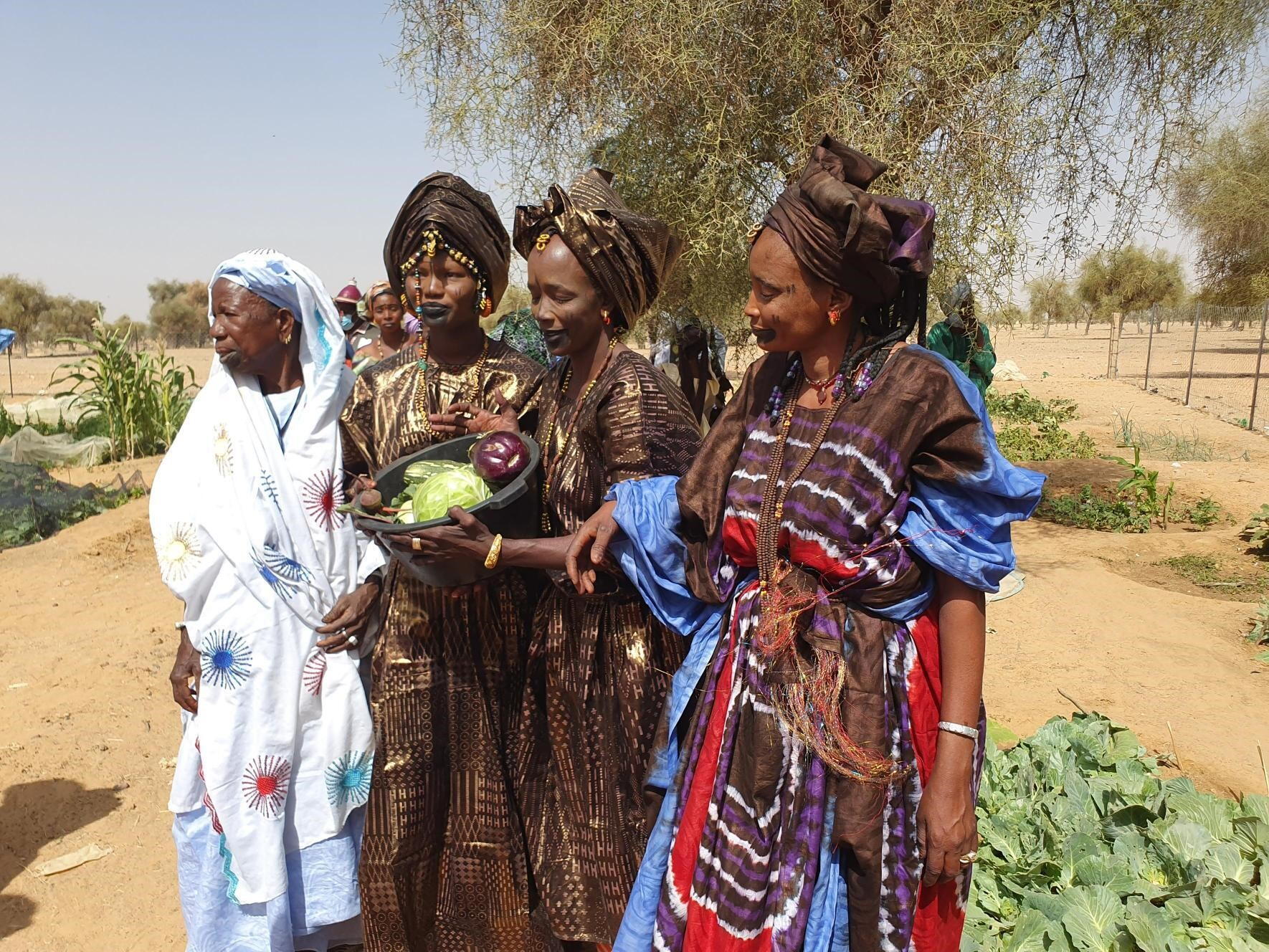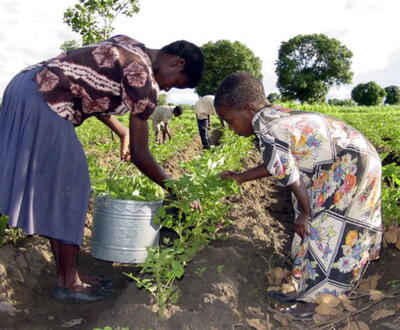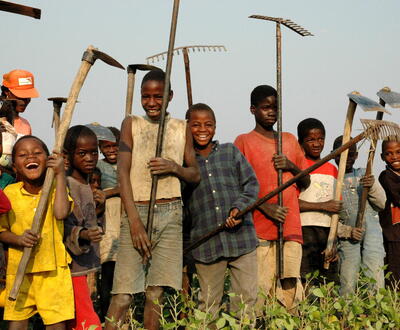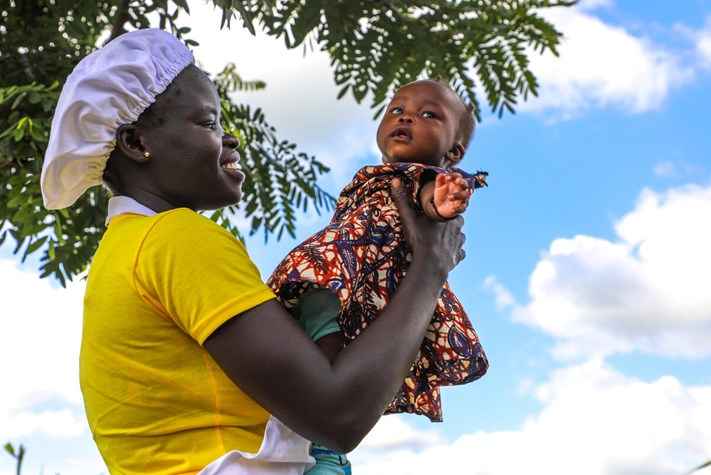
What is NOURISH?
Across the globe, millions of families are facing the devastating effects of climate change. Rising temperatures, unpredictable rainfall, droughts, floods, and storms are damaging the environment and threatening food security, increasing malnutrition, and deepening poverty. In response to these challenges, World Vision Ireland is proud to lead the NOURISH Programme, a multi-country initiative that puts nature-based solutions at the heart of community resilience.
NOURISH stands for Nature-Based Opportunities Underpinning Resilient and Sustainable Households. It is being implemented in five countries; Uganda, Tanzania, Mauritania, Solomon Islands, and Vanuatu, each facing unique but interconnected challenges. From the semi-arid lands of East Africa to the disaster-prone islands of the Pacific, NOURISH is working to ensure that vulnerable children grow up in households that are well-nourished, climate-resilient, and empowered.
The programme is designed to reach over 92,000 direct beneficiaries, with a strong focus on women, children, and people with disabilities. It targets communities living on or near the poverty line, many of which are female-headed households or families affected by climate change, food insecurity, and gender-based violence.
The programme goal is to reduce poverty and hunger in vulnerable households and communities in programme areas. This will be achieved through the following outcomes:
- Improved and sustainable livelihoods through nutrition sensitive climate smart approaches
- Increased consumption of nutritious and safe diets
- Strengthened Disaster Risk Reduction and management strategies with appropriate climate mitigation and adaptation activities
- Increased social and cultural empowerment for women and girls
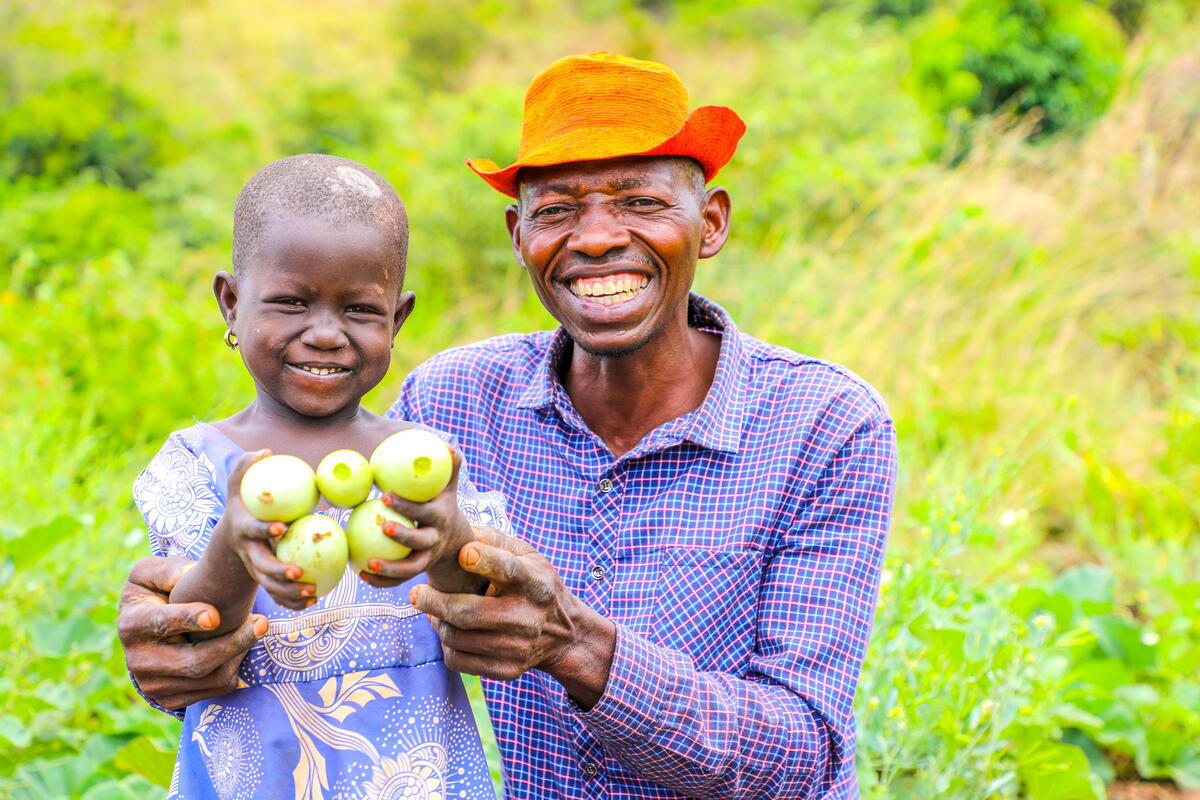
Tackling Hunger and Climate Change Together
At its core, NOURISH is about improving nutrition in a changing climate. In many of the target areas, families rely on small-scale farming and fishing to survive. But erratic weather, poor soil, and lack of access to markets and storage facilities mean that harvests are often lost, and diets are limited. NOURISH helps communities grow more diverse, nutritious food using climate-smart agriculture, such as using drought-tolerant seeds, backyard or kitchen gardens, and sustainable pest management. It also supports households to increase and diversify their incomes through off-farm livelihoods like beekeeping, and small-scale enterprises to reduce dependence on fragile ecosystems.
In Tanzania and Uganda, NOURISH supports the use of biofortified crops, such as iron-rich beans and orange-fleshed sweet potatoes, to combat micronutrient deficiencies. In Mauritania, solar energy is being introduced to reduce environmental pressure and improve household energy access. In the Pacific Islands, where climate disasters are frequent, the programme helps families prepare for emergencies and adapt to changing conditions through community-based disaster risk management.
Empowering Women and Girls
Gender equality is a cornerstone of NOURISH. In many of the target communities, women are responsible for food production and caregiving, yet they often lack access to land, income, and decision-making power. NOURISH works to change this by forming women-led savings groups, providing leadership training, and promoting economic empowerment. These groups help women save and investwhile also building confidence, fostering solidarity, and creating opportunities for women to lead change in their communities.
The programme also engages men and boys through initiatives like MenCare and Coaching Boys Into Men, which challenge harmful gender norms and promote respectful relationships. Faith leaders are trained through approaches like Channels of Hope for Gender to become advocates for equality and inclusion, helping to shift deep-rooted cultural attitudes.
While NOURISH is rooted in local realities, it contributes to global goals. It aligns with the Sustainable Development Goals (SDGs), particularly those focused on ending hunger, promoting gender equality, and combating climate change.
Through NOURISH, we are responding to urgent needs and also investing in a future where every child can grow up healthy, safe, and hopeful.
Our implementing and research partners
- Association Terre Espoir pour le Développement (ATED)
- ACTION DEV
- KIVULINI Women’s Rights Organisation
- ADP (Aridland Development Programme)
- Kastom Garden Association (KGA)
- Solomon Islands Red Cross (SIRC)
- Wan Smolbag Rainbow Theatre
- International Institute for Environment and Development (IIED)
- Irish Research Council
